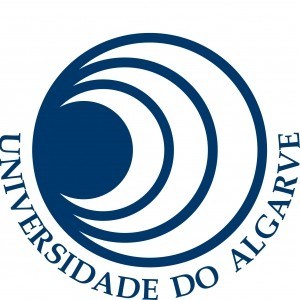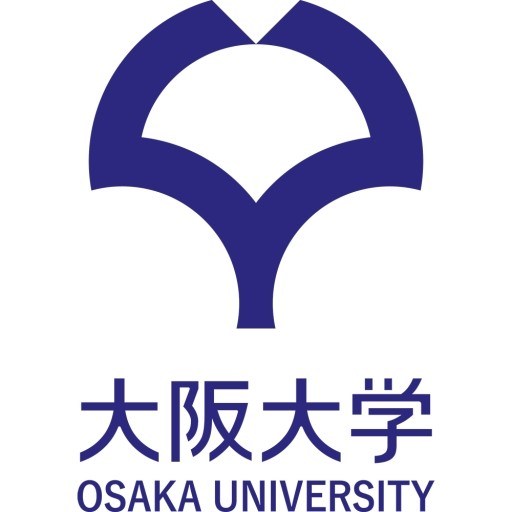Photos of university / #ualg_universidadedoalgarve
The Bachelor in Marine Biology at the University of Algarve offers an comprehensive curriculum designed to provide students with a thorough understanding of marine ecosystems, marine organisms, and the environmental challenges facing our oceans today. This undergraduate program combines theoretical knowledge with practical skills, equipping students to pursue careers in research, conservation, environmental management, and education related to marine environments. Throughout the course, students will explore various disciplines such as oceanography, marine ecology, physiology, taxonomy, and marine conservation, gaining insight into the complex interactions within marine ecosystems. The program emphasizes hands-on learning through laboratory work, field excursions, and internships, allowing students to acquire vital practical experience and develop relevant skills in data collection, sampling techniques, and environmental assessment. Located in the Algarve region, renowned for its rich marine biodiversity and vibrant coastlines, the university provides an ideal environment for field studies and marine research activities. The program also fosters critical thinking and scientific communication skills, preparing graduates to address contemporary marine issues such as pollution, climate change, overfishing, and habitat degradation. Students will have access to state-of-the-art facilities, including marine laboratories, research vessels, and partnerships with marine research centers. Upon completion of the Bachelor in Marine Biology, graduates will be well-positioned to contribute to sustainable management and conservation initiatives, pursue postgraduate studies, or enter diverse careers within academia, governmental agencies, environmental NGOs, and the private sector. The program aims not only to cultivate a deep scientific understanding but also to promote responsible stewardship of marine resources for future generations.
The Marine Biology degree program at the University of Algarve offers a comprehensive and multidisciplinary education dedicated to understanding the diverse marine ecosystems and the organisms that inhabit them. This program aims to equip students with foundational knowledge in biological sciences, ecology, oceanography, and environmental management, ensuring they are prepared to address current challenges facing marine environments worldwide. Throughout the course, students will explore topics such as marine biodiversity, marine ecology, physiology of marine organisms, conservation strategies, and sustainable management practices. The curriculum emphasizes practical skills through laboratory work, field trips, and research projects, enabling students to conduct independent scientific investigations. Students will gain hands-on experience with marine sampling techniques, underwater exploration, data analysis, and the use of modern technologies in marine research. The program also highlights the importance of understanding human impacts on marine systems, including pollution, overfishing, and climate change, fostering a sense of responsibility and stewardship among future marine scientists. Collaboration with local and international research institutions provides students with unique opportunities to participate in field research expeditions and internships, enhancing their practical experience and professional network. Graduates of this program will be well-prepared for careers in marine research, environmental consultancy, policy development, resource management, and conservation initiatives. The University of Algarve's focus on sustainable and integrated approaches ensures that students are trained to develop innovative solutions to protect and sustainably utilize marine resources. The Marine Biology program at the University of Algarve combines academic excellence with real-world applications, preparing students not only to understand marine environments but also to actively contribute to their preservation and sustainable management.
Program requirements for the Marine Biology degree at the University of Algarve typically include a combination of academic prerequisites, language proficiency, and other specific criteria. Applicants are generally expected to have completed secondary education with a strong emphasis on Sciences and Mathematics. A good background in biology, chemistry, physics, and mathematics is often recommended to ensure students are prepared for the rigorous coursework involved in the programme.
Prospective students usually need to demonstrate proficiency in English or Portuguese, depending on the language of instruction. For non-native speakers, this may require submitting results from recognized language tests such as IELTS or TOEFL, with minimum score thresholds set by the university. Additionally, some programmes may require submission of a motivation letter, curriculum vitae, or professional relevant experience, especially for students applying from non-traditional educational backgrounds.
The admission process may also consider the applicant’s academic transcripts, extracurricular activities related to marine science or environmental conservation, and references from teachers or professionals in the field. International students often need to provide their academic qualifications translated into Portuguese or English and certified by relevant authorities.
Once admitted, students are expected to meet ongoing academic performance standards, participate actively in practical and fieldwork sessions, and adhere to the university’s regulations and ethical guidelines related to research and environmental stewardship. The programme might also include mandatory internships or research projects in marine environments, requiring students to demonstrate technical skills and teamwork capacity.
In summary, the essential requirements for entering the Marine Biology program at the University of Algarve include a solid academic background in sciences, proof of language proficiency, submission of relevant documentation, and a demonstrated interest in marine sciences. Meeting these criteria ensures candidates are well-prepared to succeed in the curriculum, which aims to produce graduates capable of contributing meaningfully to marine research, conservation, and sustainable management of marine resources.
Want to improve your English level for admission?
Prepare for the program requirements with English Online by the British Council.
- ✔️ Flexible study schedule
- ✔️ Experienced teachers
- ✔️ Certificate upon completion
📘 Recommended for students with an IELTS level of 6.0 or below.
Financing studies for the Marine Biology program at the University of Algarve are primarily provided through a combination of national and international funding sources, scholarships, and student loans. The university offers a range of scholarships aimed at both domestic and international students, including merit-based awards, need-based support, and specific scholarships for students pursuing degrees in biological sciences. These scholarships often cover tuition fees partially or in full and may also include stipends to support living expenses during the course of study.
Additionally, students have the opportunity to apply for funding from European Union programs such as Erasmus+, which facilitate mobility and exchange programs, offering financial support for international experiences. The university also collaborates with various research projects and institutions, providing students with access to project-specific grants and stipends that assist in covering educational and research costs.
For resident students, some financial aid options include government-sponsored loans and grants intended to support higher education. International students may be eligible for specific scholarships designated for international mobility and tuition reduction programs, which can significantly ease the financial burden associated with studying abroad.
Part-time work opportunities available on and around the university campus also serve as an auxiliary source of income for students. The university’s career services provide guidance on internships, part-time employment, and external funding opportunities suitable for students enrolled in the Marine Biology program.
Moreover, the university promotes research grants and funding from environmental and scientific organizations, which students can access through their faculty supervisors or research projects, thus reducing the direct financial costs of research activities within the program. The availability and specific conditions for these funding options vary annually and are subject to eligibility criteria, but they collectively make the Marine Biology studies more accessible and financially feasible for a diverse student body.
The Marine Biology undergraduate program at the University of Algarve is designed to provide students with a comprehensive understanding of marine ecosystems, biological processes in marine environments, and the conservation and sustainable use of marine resources. The program emphasizes interdisciplinary learning, combining biological sciences, ecology, oceanography, and environmental management to equip students with both theoretical knowledge and practical skills necessary for careers in marine research, conservation, aquaculture, and marine resource management.
Students enrolled in this program have access to state-of-the-art laboratories, research vessels, and fieldwork opportunities along the Algarve coast, which is renowned for its rich biodiversity and diverse marine habitats. The curriculum covers fundamental areas such as marine organism identification, physiology, marine ecology, and environmental impact assessment. Additionally, students learn about marine conservation policies, marine protected areas, and the impacts of human activities on marine environments, fostering a sense of responsibility and sustainability.
The program often involves collaboration with local, national, and international research institutions, providing students with valuable internships and project opportunities. These engagements enable students to gain practical experience and establish professional networks within the marine biology community. Graduates of the program are well-prepared for postgraduate studies or for entering careers in marine research institutions, governmental agencies, environmental consulting firms, and NGOs dedicated to marine conservation.
The University of Algarve also promotes active student participation in ongoing research projects, enabling students to contribute to scientific publications and presentations, which enhances their academic and professional profiles. The program's combination of classroom instruction, laboratory work, field stations, and research projects aims to produce highly skilled and environmentally conscious marine biologists who are capable of addressing current challenges facing ocean and coastal ecosystems.
Language of instruction for most courses is Portuguese, with some programs offering content in English to attract international students. The program duration is typically three to four years, depending on the curriculum structure and whether students opt for internships or additional research activities. Overall, the Marine Biology program at the University of Algarve offers an excellent foundation for those interested in understanding and protecting marine ecosystems through a blend of scientific inquiry and practical application.








